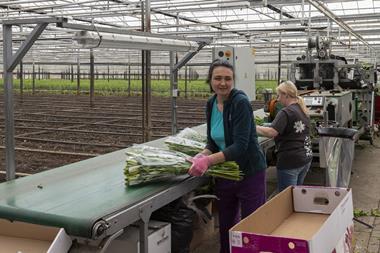EUROPE - Swiss private bank Sarasin has started to roll out a more sustainable approach across its Swiss asset management business.
Until two weeks ago, the business was organised by investment style and had two separate units in place - quantitative and sustainable. This has now been reorganised in order to allocate these assets under the same roof.
Andreas Knörzer, managing director and head of asset management, told IPE: "We have since started to merge certain products into a more sustainable offering - for example, our US equity quant fund with the US sustainable equity fund.
"However, we still need to maintain a diversified offering for our clients, so we are not aiming for a 100% sustainable business based on environmental, social and governance (ESG) criteria as the primary trigger for investment selection.
"Instead we aim to make the best use of our expertise in sustainable investing to integrate ESG criteria into the wider decision-making process as a means of prudent risk management."
Knörzer said the bank planned to make its non-sustainable fund offerings more responsible in this way within the next 12 months.
Two-thirds of Sarasin's Swiss asset management bond holdings can already be classed as sustainable because an integration of ESG criteria in bonds is relatively easy, Knörzer said.
However, to complete the transformation, the bank will not sell bonds with less than 12 months' duration.
Sarasin has experience of turning classic asset management into sustainable business. It previously switched all of its private mandate offerings in Switzerland to the sustainable style.
Prior to December 2008, private investors had to opt in to apply sustainable strategies, but since then, any investor not wanting to invest sustainably has had to opt out.
Knörzer has also witnessed a shift among investors.
"Pension funds and insurers are now willing to give away top equity performance in return for more stability and less volatility," he said. "While cleantech and similar investments tend to have a higher track record and higher volatility, the expectation for classical SRI funds is that their risk profile is lower than that of normal funds."
Knörzer distinguished between two types of investors - those that fully integrate sustainability across their portfolio and those that tiptoe around the ESG space and invest in high-alpha strategies.
"Asian investors, for example, are currently more interested in short-term trading than the long term," he said.
"The solution is to get the investors to tiptoe into sustainable products in the hope that, if they are successful, they will follow with more money."
He added: "The BP Gulf of Mexico disaster has not triggered more sustainable sales - however, the financial crisis has helped push sales because of the association of sustainability with transparency."












